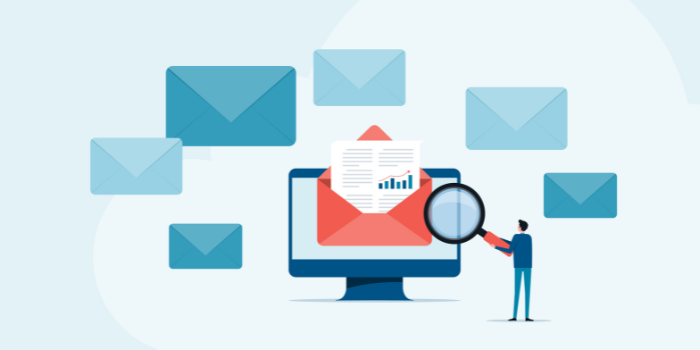
Did you know more than 150,000 emails are sent every minute? That makes the number of emails sent on an average day over 200 million! That’s a lot of email. And a lot of data to go with it. It should come as no surprise, then, that email is the most prominent form of data for ediscovery. Corporate legal teams dealing with small cases with a relatively low number of custodians will still be looking at data for thousands of emails.
And yet, email threading is not known universally as a way to help preserve long email threads. This blog will detail what exactly email threading is, how it works, and how it can help your in-house legal teams conduct email preservation and review more efficiently.
What is Email Threading?
We’ve all experienced it. You’re on an email thread with a few people, documents are sent, people reply all, and before you know it you’re staring at an endless thread of emails, not knowing where to start or how to make sense of it. This is an email thread.
Think of it as branches, with each email branching off in multiple directions as senders cc, bcc, forward the email, or attach documents at different dates and times. Email threading for ediscovery involves identifying the relationships within emails and parsing through threads, people, and attachments so that they can be viewed as a chain of unique, individual messages while still maintaining the context of the larger email conversation.
Or, as another way to think about it, email threading is like a jigsaw puzzle where each individual email is a puzzle piece. It shows you how all of the pieces fit together to create a complete picture.
How Does Email Threading Help With Ediscovery?
When it comes to ediscovery, preservation efforts must typically account for complete email threads. Haphazardly including some emails in a particular thread in your document review set but leaving others out can lead to questions about the defensibility of your company’s preservation process. Beyond being a best practice for data preservation, email threading helps speed up the review process by reducing the amount of time spent following communication in email trails and providing immediate context to keyword hits during review.
Keeping messages and discoverable attachment data in context and chronological order, instead of treating every email like a one-off message, is critical for effective review. Reviewers may not understand the value or meaning of a certain email until it is presented within the context of a larger email thread. For example, think of potential internal bad actor cases where code words or themes are used repeatedly. It may not make sense in one email but with email threading reviewers are able to understand a pattern within a thread and figure out what the code words mean. Additionally email threading can expose if and when specific recipients are included or left off of email threads. That can help establish a more accurate scope for further ediscovery efforts like custodian interviews.
What Role Does Ediscovery Software Play?
If you want to make sure your team has the fastest time to insight into a document review set, email threading is a must-use function. ZDiscovery allows customers to seamlessly preserve, collect, and review email threads so corporate legal teams can conduct more effective review in less time. If your ediscovery software doesn’t offer email threading, it’s time to upgrade!




